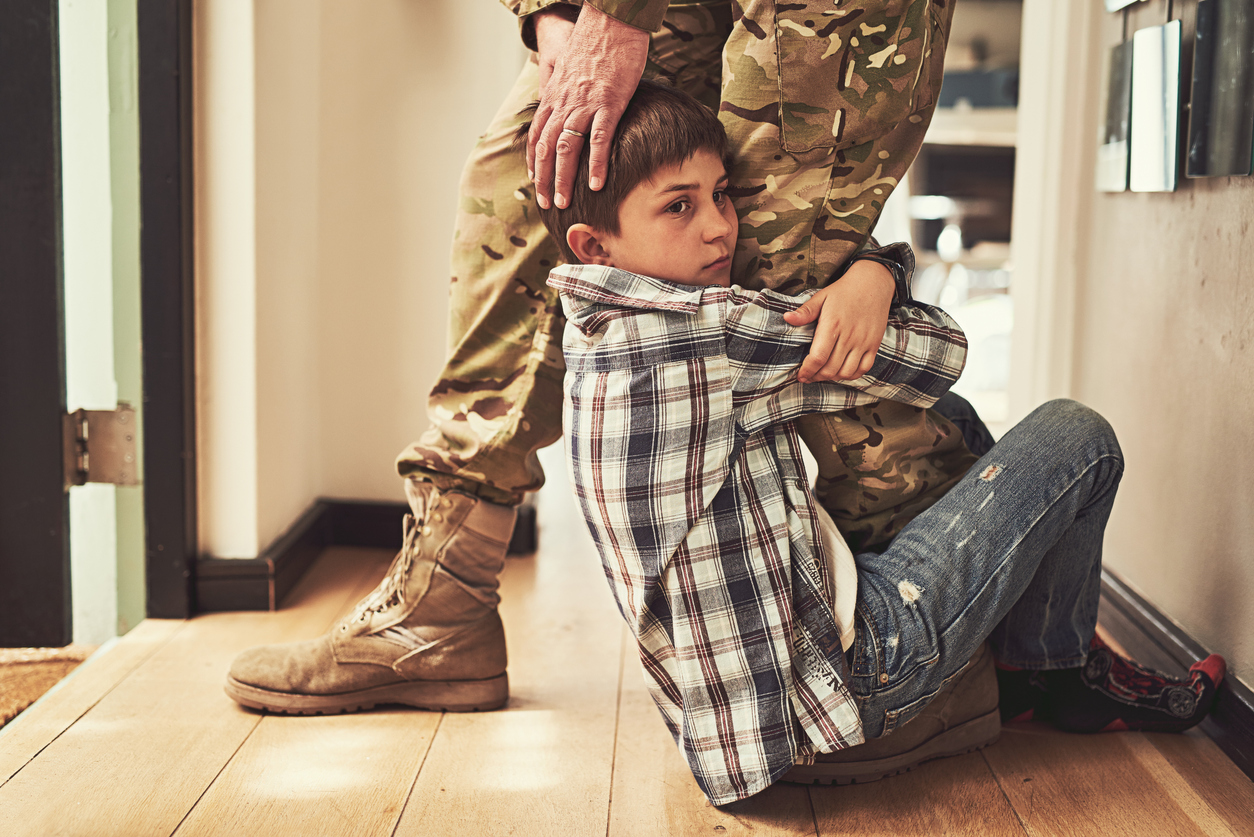Effective Discipline Strategies for Military Parents
Military parents thrive with clear expectations, contracts, and behavior charts. Keep rules transparent, follow through, and explain ‘whys.’ Establish open dialogues, listen actively, and validate feelings. Reward good behavior often. Consistent time-outs teach cause and effect. Guarantee routine consistency for daily schedules and structure. Flexibility is crucial to tailored discipline methods. Seek peer support, use available resources for additional help. These strategies offer stability and growth for your family dynamics amidst military challenges.
Key Takeaways
- Establish clear expectations through parent-child contracts and behavior charts.
- Foster open communication and actively listen to build trust.
- Use positive reinforcement like rewards and praise for good behavior.
- Implement time-outs and consequences with consistency and explanations.
- Maintain routine and structure for predictability and stability.
Setting Clear Expectations

When raising children as a military parent, it’s important to set clear expectations to guide their behavior and actions effectively. One practical way to establish these expectations is through parent-child contracts.
Sit down with your child and outline specific rules and consequences in a written agreement. Behavior charts are also useful tools to visually track and reward positive behaviors while addressing areas needing improvement.
Household rules play a vital role in maintaining discipline. Clearly communicate these rules to your children and make sure they understand the reasons behind them. Consistent follow-through is key. If a rule is broken, enforce the agreed-upon consequences.
This consistency helps children understand the importance of adhering to set expectations.
Consistent Communication

To maintain a strong connection with your children and guarantee effective discipline, consistent communication is essential. Open communication lays the foundation for trust building and empathy development within your family. By actively listening to your children, you show them that their thoughts and feelings are valued. This not only strengthens your relationship but also helps you understand their perspectives better.
Consistent communication involves not only conveying your expectations but also creating a safe space where your children feel comfortable expressing themselves. Encourage them to share their thoughts, fears, and dreams openly. By fostering an environment of open dialogue, you demonstrate that their voices are heard and respected.
Building trust through consistent communication is a two-way street. As you engage in active listening, your children learn the importance of empathy and understanding in relationships. This paves the way for smoother interactions and more effective discipline strategies based on mutual respect and understanding.
Positive Reinforcement Techniques
Hey there, military parent!
When it comes to discipline, positive reinforcement techniques can make a world of difference. By offering rewards for good behavior, providing praise and encouragement, and consistently using these tools, you can create a supportive and motivating environment for your child.
Stay tuned to learn more about how these strategies can help you navigate the challenges of parenting in the military.
Rewards for Good Behavior
Encouraging positive behavior through rewards is a highly effective strategy for shaping your child’s conduct in a military household. Incentive programs and behavior charts can be valuable tools in implementing this approach.
By setting up a token economy system, where your child earns tokens for displaying good behavior and can later exchange them for rewards, you establish a clear structure that motivates positive actions.
Positive reinforcement is key in reinforcing desired behaviors. When your child follows instructions promptly or completes tasks without reminders, acknowledging their efforts with praise or a small reward can go a long way in reinforcing those behaviors.
This method not only encourages good conduct but also boosts your child’s self-esteem and confidence.
Praise and Encouragement
When it comes to discipline strategies for military parents, utilizing praise and encouragement is a powerful tool in reinforcing positive behavior in your child. Motivating progress and building confidence are essential aspects of your parenting journey. By acknowledging and praising your child’s efforts, you not only reinforce the desired behavior but also boost their self-esteem.
Make sure to provide specific and genuine praise. Instead of just saying, ‘Good job,’ try mentioning what exactly they did well. This shows your child that you’re paying attention and appreciate their actions.
Encouragement can come in various forms, such as verbal praise, high-fives, or a simple hug. Tailor your approach to what resonates most with your child.
Consistently offering praise and encouragement creates a supportive environment where your child feels valued and motivated to continue making positive choices. Remember, celebrating small wins can lead to significant progress over time. Your words have the power to shape your child’s behavior and mindset positively.
Consistent Use of Rewards
How can you effectively implement consistent use of rewards to reinforce positive behavior in your child?
One practical approach is utilizing behavior charts as motivation techniques. Create a chart outlining specific behaviors you wish to encourage, such as completing chores or showing kindness to siblings. Each time your child demonstrates these behaviors, mark it on the chart. This visual representation allows both you and your child to track progress and celebrate achievements together.
In addition to behavior charts, incorporating incentives can further reinforce positive behavior. Consider offering rewards such as extra playtime, a favorite dessert, or a small toy for reaching certain milestones on the behavior chart. These incentives can serve as immediate reinforcement for your child’s good conduct.
Furthermore, recognition strategies play an important role in maintaining consistency. Praise your child for their efforts and accomplishments, emphasizing the positive impact of their behavior.
Time-Out and Consequences

To effectively implement time-out and consequences as discipline strategies, it’s crucial to establish clear expectations and consistent follow-through. When using time-outs, make sure they’re age-appropriate and brief to be effective for behavior modification. Communicate the reasons for the time-out and provide guidance on what behavior needs to change. Consistency is key; apply time-outs each time the unwanted behavior occurs.
Natural consequences can also be powerful teachers. Allowing natural consequences to occur can help children understand the impact of their actions. For instance, if a child refuses to wear a coat, they may feel cold outside. This natural consequence can reinforce the importance of listening and following instructions.
Utilizing Routine and Structure
To effectively manage discipline as a military parent, establishing consistent daily schedules and setting clear expectations is key.
By providing structure and routine, you create a stable environment that helps children understand boundaries and expectations.
This predictability can aid in reducing behavioral issues and fostering a sense of security within your family dynamic.
Consistent Daily Schedules
Establishing consistent daily schedules is essential for military parents to provide a sense of routine and structure for their children. Routine consistency and time management play vital roles in maintaining a stable environment for your family.
By sticking to a daily structure and ensuring timetable adherence, you create predictability that can help children feel secure, especially during times of deployment or other military obligations.
Start by establishing set wake-up times, meal times, and bedtime routines. Consistency in these basic daily activities can help anchor your child’s day and provide a sense of normalcy. Additionally, consider incorporating dedicated study or play times into the schedule to encourage productivity and fun within a structured framework.
Remember that flexibility is also important in military life, but try to maintain the core aspects of your daily schedule even during unpredictable times. This will help your children understand expectations and navigate changes more smoothly.
Clear Expectations Set
Setting clear expectations through utilizing routine and structure is vital for military parents to effectively discipline their children and maintain a sense of order in the household. Consistent boundaries play a key role in helping children understand what’s expected of them.
By establishing a routine that includes set times for meals, homework, bedtime, and chores, you provide a framework that promotes predictability and stability for your children.
Incorporating clear expectations into your daily schedule helps children know what’s required of them, reducing confusion and potential conflicts. When setting rules and guidelines, be consistent in enforcing them. Children thrive in environments where expectations are clear and consequences are predictable.
Effective consequences are essential in teaching children about responsibility and accountability. Remember that setting clear expectations isn’t about being rigid or inflexible but rather about creating a structured environment that fosters growth and development.
Flexibility in Disciplinary Approaches

When considering flexibility in disciplinary approaches, remember that adaptation is key to effectively addressing different behaviors and situations. It’s important to implement individualized strategies by adapting techniques to suit each child’s unique personality and needs. Tailored approaches and personalized methods can help you navigate the challenges of disciplining your children as a military parent.
Being flexible in your disciplinary approaches means being open to trying different methods based on what works best for each situation. For example, while a timeout might be effective for one child, another might respond better to a loss of privileges. By being willing to adjust your approach, you can find what resonates most with your child and reinforces positive behavior.
Remember that flexibility doesn’t mean inconsistency. It’s about being responsive to the needs of your children while still maintaining clear boundaries and expectations. By adapting your disciplinary techniques to suit each child individually, you can foster a respectful and nurturing environment for your family.
Seeking Support and Resources
To effectively navigate the challenges of parenting within the military lifestyle, it’s essential to actively seek out support and utilize available resources to enhance your disciplinary strategies. Being a military parent comes with unique stressors, and seeking support can make a significant difference in how you approach discipline with your children.
Consider engaging in peer counseling or joining online forums specifically tailored to military families. These platforms can offer a sense of community and provide valuable insights from others who understand the demands of military life.
Additionally, enrolling in parenting classes or attending therapy sessions can equip you with effective tools and strategies to manage discipline in a way that aligns with your family values and circumstances. These resources can offer a structured approach to addressing behavioral challenges and improving communication within your family unit.
Frequently Asked Questions
How Can Military Parents Balance Discipline With Deployment Schedules?
Balancing discipline with deployment schedules can be tough. Make sure to set clear expectations and routines. Use remote discipline methods and keep open communication channels. Stay consistent in your approach to help maintain structure during challenging times.
What Are Some Effective Ways to Handle Discipline During Transitions?
During changes, maintaining consistent boundaries and clear communication is key. Implement positive reinforcement for good behavior and use time outs for redirection when needed. Stay patient and understanding to help navigate discipline effectively.
Can Discipline Strategies Vary Based on the Child’s Age?
Yes, discipline strategies can vary greatly based on your child’s age. From handling toddler tantrums with patience to maneuvering teen rebellion with clear boundaries, it’s important to adapt your approach to meet their developmental stage.
How Can Military Parents Address Discipline in Blended Families?
In blended families, military parents can navigate discipline by emphasizing co-parenting dynamics and involving step parents. Effective communication and consistency in discipline tactics are key. By working together, you can create a united front for positive behavior reinforcement.
What Are Some Tips for Maintaining Discipline During Relocations?
Maintaining discipline during relocations can be challenging, but consistency in routines, positive reinforcement, open communication, and flexibility are key. Stick to your rules, praise good behavior, talk openly, and adapt as needed.
Conclusion
To sum up, as a military parent, you have the unique challenge of balancing discipline and understanding in your parenting approach.
By setting clear expectations, communicating consistently, utilizing positive reinforcement, and being flexible in your disciplinary strategies, you can effectively guide your children towards positive behavior.
Remember to seek support and resources when needed, and always approach discipline with empathy and practicality.
Your dedication to raising respectful and responsible children is commendable. Keep up the great work!

Chad Adan Kace, a young dad from Vermont, shares his parenting journey with a touch of humor and lots of love. Father to a lively baby, he explores the joys and challenges of fatherhood through his stories.







